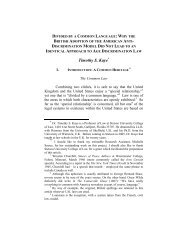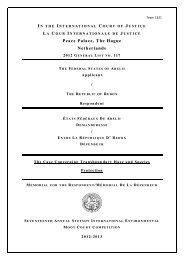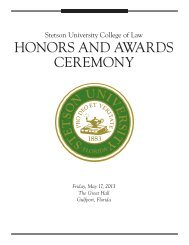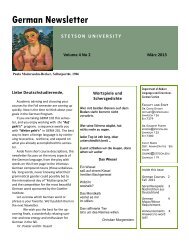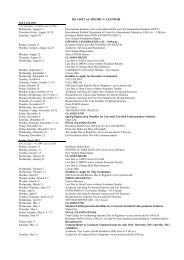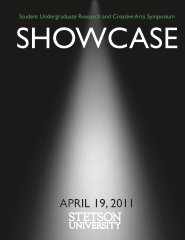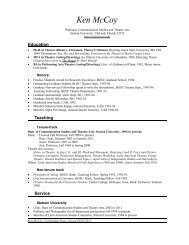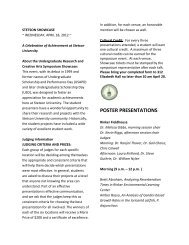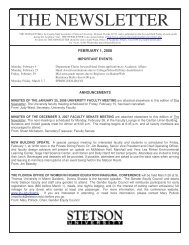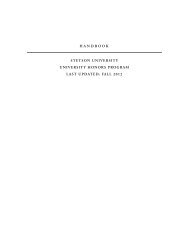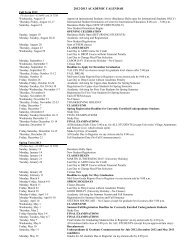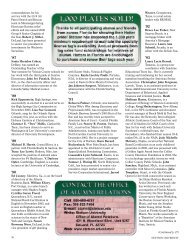Tiffany Huet Class of 2008 Justifying Violence: A ... - Stetson University
Tiffany Huet Class of 2008 Justifying Violence: A ... - Stetson University
Tiffany Huet Class of 2008 Justifying Violence: A ... - Stetson University
You also want an ePaper? Increase the reach of your titles
YUMPU automatically turns print PDFs into web optimized ePapers that Google loves.
therefore, must be meant figuratively. He never entertains the idea that his conclusion might be<br />
mistaken.<br />
Thus, Bray creates a theology in which all <strong>of</strong> Scripture’s reference to war and force is<br />
literal, Jesus’ words are figurative when contradictory, and his works are evidence <strong>of</strong> his purpose<br />
as a sacrificial lamb and nothing more. Christ’s being is reduced to his death for the salvation <strong>of</strong><br />
humanity. The goal <strong>of</strong> the Bray-ist Christian is not to live like Jesus, but to follow the commands<br />
<strong>of</strong> God, which exclude Jesus’ command to love our enemies and not judge others. 66<br />
It is highly contradictory that Bray not only reinterprets such classic passages as these,<br />
but also uses noncanonical examples in his research, especially since he split from his church in<br />
1984 because <strong>of</strong> their “abandonment <strong>of</strong> the doctrine <strong>of</strong> scriptural literalism.” 67 He cites the lex<br />
talionis, an ancient code that calls for retributive justice. He claims that Jesus does not and would<br />
not contradict this “just and good” precedent <strong>of</strong> retributive justice with his call to turn the other<br />
cheek. 68 It should also be noted that Bray dedicates an entire chapter to the re-interpretation <strong>of</strong><br />
Scripture, but never mentions the Ten Commandments. Again, what kind <strong>of</strong> literalist is this?<br />
What about God’s command that one “shall not murder [or kill]” (Exodus 20:13)? In all <strong>of</strong> this<br />
quoting and analyzing, he somehow leaves out any mention <strong>of</strong> the very straightforward<br />
commandments from God to his people. This demonstrates again Bray’s selective literalism.<br />
In the first chapter <strong>of</strong> his book, Bray states that Christians are warned against “false<br />
assurance” <strong>of</strong> their faithfulness in action. 69 First, he gives no biblical basis for this doctrine,<br />
which causes one to wonder if Bray is simply rewriting Christian doctrine to suit his perceptions<br />
<strong>of</strong> reality. Secondly, he discusses what he assumes to be the correct interpretation <strong>of</strong> biblical<br />
66 Bray, 52.<br />
67 Juergensmeyer, 22.<br />
68 Bray, 51.<br />
69 Bray, 18.<br />
19



